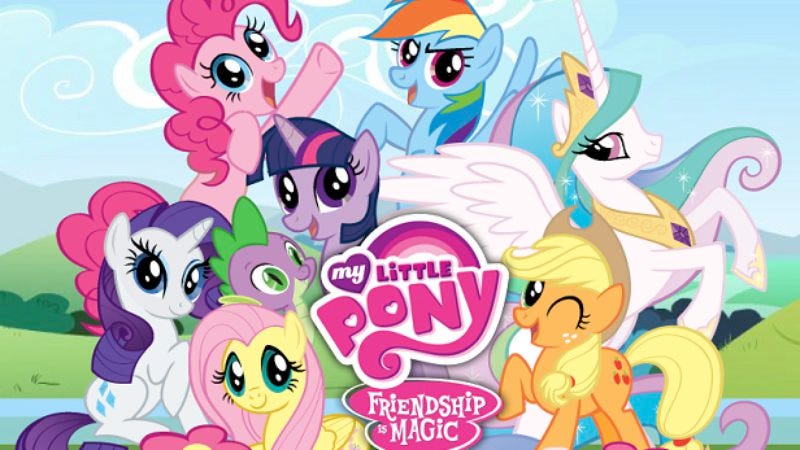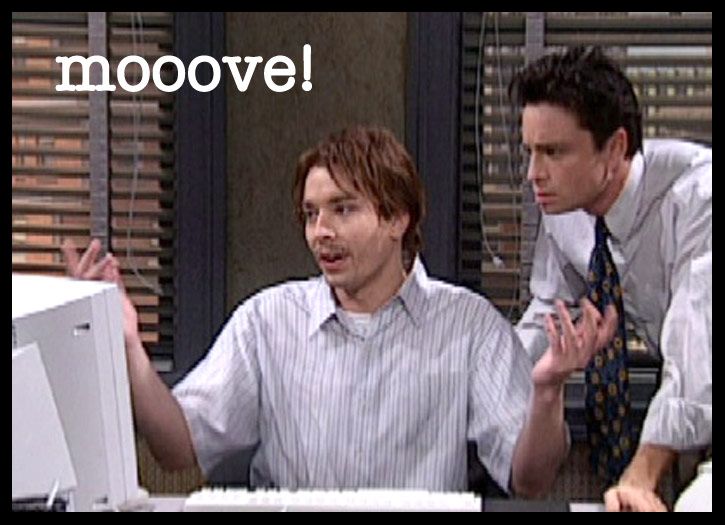I'm probably going to hell for loving Spotify so much, right?
A few thoughts on algorithms, middle-age, Hogwarts, autism and Fleetwood Mac
#spotify #music #streaming #innovation #yachtrock #algorithms #recommendations #MagicHogwartsShit #autism #nerdslaves #VIM #JamesDamore #sofiabolt #52weekphotographychallenge #2019photographychallenge #52week #photography #challenge #week2 #portrait #noface #teens #chicago #hydepark #sunday #homework

So, my Macintosh desktop died a few weeks ago. It was almost ten years old at this point, the first thing I bought with my insurance settlement money back after my bicycle crash in 2009, so it lasted longer than I expected it to, but still. But now we live in an era of history when even crappy low-end Macs are ridiculously fucking expensive, so I've decided to try a whole new way of going about things in 2019 instead, by switching over full-time to Linux, which I've flirted with on and off over the years but have never fully embraced as my main everyday operating system. To complement this, I've decided to also this year move a number of my key workflow situations off a central local hard drive and onto the cloud; and that has included signing up for Spotify for the first time in my life a few weeks ago.

Wow, Spotify is amazing. I know, I feel dirty just saying that out loud, but it's hard to deny it. First of all is the ability to call up and instantly listen legally to almost every song ever made in human history, which is a much more powerful thing than you give it credit for when you don't have that access. The other day, for example, I got to thinking about Fleetwood Mac's recent induction into the Rock And Roll Hall Of Fame, which got me on Wikipedia as normal and reading all about the meandering, fascinating history of this band whose riveting personal dramas made up half the mythos of them becoming such unstoppable global stars in the 1970s. But this time I could also load up all the albums I was interested in (1975's Fleetwood Mac through 1987's Tango in the Night, after they coalesced into their current line-up and pop focus but before they became Just Another Generic Adult Contemporary Band), and could tag them all to a temporary Spotify playlist called, “Listen to every song on these albums.”

Then over two weeks I could slowly come back to that playlist and leisurely make my way through these five albums in their entirety, adding specific songs to another more permanent playlist (Favorite Soft Rock of the '70s and '80s), and deleting each song as I had a listen, eventually culling the list back down to zero but without ever losing my place of where I was. And meanwhile the songs were reminding me of other bands from the era, and singles I used to secretly love between the ages of ten and fifteen (back when you couldn't admit that you loved select soft-rock songs), which has had me filling up that playlist with Hall & Oates, Christopher Cross, Toto, Captain and Tennille, Billy Joel, Chicago, Blue Oyster Cult, Steely Dan, Seals and Croft, Steve Miller, and more. Which has had me reading more Wikipedia and learning more stories — did you know that Patti Smith dated one of the members of Blue Oyster Cult, and created the lyrics to many of their early songs? Did you know their manager was the one who invented the music term “heavy metal?” — which has led me down even deeper rabbitholes (cough cough yacht rock) and bands I used to not listen to regularly in those years (Boz Scaggs, Todd Rundgren), and on and on. And this is while also getting to load up new playlists on contemporary hipster indie-rock, bossa nova, Baroque-era classical music, etc, and go through the same process with those.
All this is expected; but what's been a shock is just how good Spotify's recommendation service has gotten, the result of staggering amounts of data being combined with all-new sophistication in the algorithms that are analyzing it. I first learned about the subject of algorithms while attending a coding bootcamp back in 2015, and for a long time just seemed to me like “magic Hogwarts shit” (as I would put it to the more experienced full-stack coders on the teaching staff), until someone finally sat down and explained in plain terms that an algorithm is nothing more than a fancy name for a set of instructions. When you tell a little kid the steps for taking a bath by themselves, that's technically the Bathroom Algorithm; but as anyone who's done this knows, sometimes those instructions have to get cartoonishly precise and complicated in order to combat a kid's propensity for bending the rules as much as they can possibly get away with. (“Wash behind your ears. Wash behind your ears with a washcloth. Wash behind your ears with a washcloth you've gotten wet. Wash behind your ears with a washcloth you've gotten wet and spread soap on. Damnit, Billy, you're really pushing my buttons tonight.“)

And so it is for algorithms at web apps too, which is why historically recommendation engines at websites for creative work have had a less than stellar reputation. Just for one quick easy example, I currently have both Breaking Bad and My Little Pony: Friendship Is Magic in my playlist at Netflix, but that doesn't mean that those who love Breaking Bad are necessarily going to love My Little Pony. Early recommendation systems (and current ones that are done cheaply and quickly) did exactly that, however, which is their recommendations were so worthless. What you really need is an algorithm that asks, “Is this person only into one of these or the other for ironic enjoyment only? If so, which one is it? Can you maybe look at the other things in their playlist to make that determination? Can you assign 'non-ironic' scores to each project and weight their importance thusly? (That is, not a single person in history has ever added Breaking Bad to their watchlist in order to watch it flippantly for ironic enjoyment while rolling their eyes and laughing.) Can you then build some rules that determine other shows they'll love ironically, but not if they didn't already sincerely love Breaking Bad?”

As mentioned, that's some magic Hogwarts shit, way beyond the capabilities of most of us who were at coding bootcamp and learning about this subject for the first time. In fact, the few there who could grasp this and understand the complicated formulas to write to affect such sophistication were always the ones that (opinionated judgements aside) were the closest in reality to the stereotypical comedy archetype from Saturday Night Live of an unpleasant, hard-to-get-along-with nerd. I saw these people all around me at coding bootcamp, being almost comically cliched in their behavior and attitudes about coding: they were the ones who would literally say out loud, “My job isn't to coddle the end user, it's to do the actual real job of making it work,” the ones who loved nothing more than sitting in front of a glowing terminal in a black windowless room for 16 hours a day while the rest of the human race politely left them the fuck alone, thank you very much. It was one of the things that made me realize, in fact, that I had no future in full-stack coding, and never will; when people like this are so astronomically better at full-stack programming than anyone else will ever be, then it's these people who are fated to become the army of full-stack coders our society needs to make all our software engines churn.

I'm sure if you show up to the Spotify corporate headquarters tomorrow, you'll find the pleasantly hipster Millennial-Brutalist tasteful open-plan space you were exactly expecting, full of “delightfully authentic” concrete floors and big-ticket furniture scattered across it, the exact kind of a place a sexy hipster musician can spend exactly 20 minutes loitering at without losing their street cred but while marveling at the den of geniuses they're amidst. But swipe a pass card over a featureless door in the back wall, and I'm positive you'll stumble across the horror-story warehouse of pasty, frog-eyed, non-normally-socialized nerds that are actually making that place run, chained to their dual monitors while their fingers nimbly dance of their own blind volition across their cracked and stained VIM keyboard. (Or as my brother put it while floating this theory past him — “Worst. Episode. Of. Black. Mirror. Ever!“) I'm in awe of how well it works, but let's be clear that it's a process that neither you nor I will understand our entire lives, which is why the tech industry is always going to be peppered with the regular James-Damore-type who will suddenly create a public outrage no one was expecting, simply because he couldn't understand why someone would get upset over the perfectly logical and true fact that women are biologically inferior to men. It's the people like that who get Spotify to realize that if you like Cat Power, you'll most likely love Sofia Bolt too; but you can't have your Sofia-Bolt-recommending Spotify without your James Damores.

I picked a winner early this week for task #2 of the 2019 52-Week Photography Challenge I'm doing this year. The theme this week was “a portrait that doesn't show the face,” which immediately got me thinking about the scene around my friend Carrie's house in Hyde Park on most Sundays that I go down there to help prepare and share dinner; her now 15-year-old twin sons fatally behind on their weekend homework, buried in their laptops, with no time for me or anyone else because they're so frantically trying to get their work done before Monday morning. I'm a big fan of fine-art domestic photographers like Sally Mann and Nan Goldin, so I'm glad when my photography challenge can lead to something like this, that's both aesthetically pleasing and that tells a very real, human story about the people in my images. As always, check out more at my Instagram or Flickr accounts.


